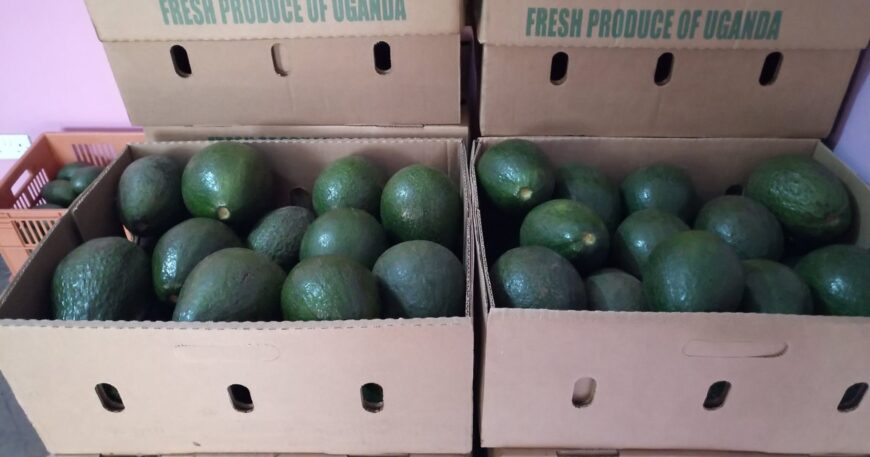By Humphrey Wampula
Avocado farming and export in Uganda is a growing industry that has the potential to provide significant economic benefits for the country. The climate and soil conditions in Uganda are well-suited to avocado cultivation, and there is a growing demand for avocados in international markets. This case study will examine the current state of avocado farming and export in Uganda, including the challenges faced by farmers and the opportunities for growth in the industry.
Uganda is a country located in East Africa, with a population of around 44 million people. The country has a diverse climate, ranging from tropical to temperate, which makes it suitable for growing a wide variety of crops. One of the crops that is particularly well-suited to the Ugandan climate is the avocado. The avocado tree is native to Central and South America, but it can also be grown in other parts of the world, including Uganda.

The avocado farming industry in Uganda is still in its infancy, but it is growing rapidly. According to the Uganda Bureau of Statistics, the area under avocado cultivation in the country increased from 1,800 hectares in 2015 to over 4,000 hectares in 2019. This increase in the area under cultivation has been driven by a growing demand for avocados in international markets, as well as by the potential for high returns on investment.
The main challenges faced by avocado farmers in Uganda are a lack of access to finance, a lack of technical expertise, and a lack of infrastructure for transporting and marketing the fruit. Many farmers in Uganda are smallholder farmers who do not have access to the capital needed to invest in their farms. This makes it difficult for them to purchase the necessary inputs, such as seeds and fertilizers, and to invest in the infrastructure needed to transport and market their avocados.
Another challenge faced by avocado farmers in Uganda is a lack of technical expertise. Many farmers in the country are not familiar with best practices for avocado cultivation, such as pruning and pest management. This can lead to lower yields and lower quality fruit.
Despite these challenges, there are many opportunities for growth in the avocado farming and export industry in Uganda. One of the main opportunities is the growing demand for avocados in international markets. According to the Food and Agriculture Organization of the United Nations (FAO), global avocado production is expected to increase by 3.5% per year between 2016 and 2020. This increase in demand is driven by a growing awareness of the health benefits of avocados, as well as by the growing popularity of avocado-based products, such as avocado toast and guacamole.
Another opportunity for growth in the avocado farming and export industry in Uganda is the potential for high returns on investment. According to the Uganda Investment Authority, the average yield for avocado trees in Uganda is around 20 tonnes per hectare. At current prices, this can generate revenues of up to $40,000 per hectare per year. This is significantly higher than the returns on investment for other crops, such as maize and beans.
In conclusion, avocado farming and export in Uganda is a growing industry with significant potential for economic growth. Despite the challenges faced by farmers, such as a lack of access to finance and technical expertise, there are many opportunities for growth in the industry. This includes a growing demand for avocados in international markets and the potential for high returns on investment. With the right policies and investments, the avocado farming and export industry in Uganda could become a major contributor to the country’s economic development.





